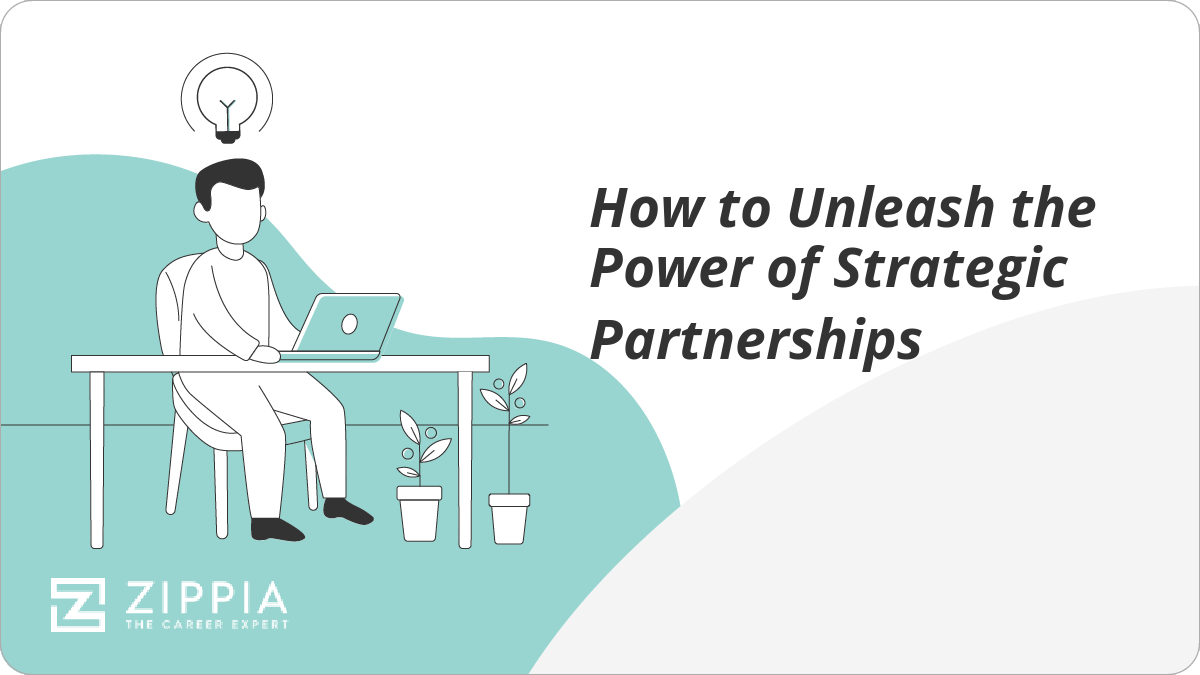Strategic partnerships can provide your business with the opportunity to expand beyond your existing resources and capabilities to secure a better stronghold in the market, or to break into a new market, which may otherwise be impenetrable.
Typically defined by a formal agreement between two or more complementary businesses, strategic partnerships are often formed to build stronger and enviable market positions for the parties involved.
If you are a startup, strategic partnerships can help strengthen your position and your exit strategy, which in turn attract investors looking for the unfair advantage. As a result, strategic partnerships have become an integral part of modern strategic thinking in business.
Key Takeaways
-
Identify your business’s goals before looking for a strategic partner.
-
Be sure your strategic partner is aligned with your organization’s goals, culture, and ideas of what the partnership will look like.
-
Work to build trust with your strategic partner throughout your relationship.

The Starbucks Case Study
As the largest coffee house company in the world with over 20,000 stores in over 60 countries, Starbucks has become very much a part of our lives.
But what some of us may not realise is that there was a time in the late 80’s when Starbucks struggled financially after its failed attempt on expansion into the Midwest and Canada. A few years later, Starbucks turned the tide, and got back on its feet. The rest is history as Starbucks grew to become the global brand that it is today.
How did Starbucks do it?
It was partly through a series of creative and premeditated strategic partnerships and alliances.
-
In 1993, Starbucks partnered with Barnes and Noble bookstores to provide in-house coffee shops, benefiting both retailers.
-
In 1996, Starbucks partnered with Pepsico to bottle, distribute and sell the popular coffee-based drink, Frappuccino.
-
Its alliance with United Airlines promoted Starbucks coffee to be served on all its flights, with the Starbucks logo on the cups.
-
It was also its strategic partnership with Kraft foods, which resulted in Starbucks coffee being marketed in grocery stores.
-
In 2006, Starbucks partnered with Apple to collaborate on selling music as part of the “coffee house” experience.
There are countless other examples of how companies like Starbucks have used strategic partnerships relentlessly to grow their market position. Strategic partnerships worked for Starbucks. Now imagine what they could do for your business.
Getting Started
Here are some tips for getting started:
-
Set a clear vision for your business (if you haven’t already).
-
Determine your immediate goals and how strategic partnerships could help you achieve these goals.
-
Understand your strengths and capabilities.
-
Develop key selection criteria for potential strategic partners (elaborated below).
-
Brainstorm and create a list of potential partners and start research.
In developing your selection criteria, the aim is to consider potential businesses with a complementary product or service offering as well as their existing customer base, industry verticals, experience, and brand reputation in the market.
For example, if you are trying to reach more customers, but your strength is mainly in technology, then perhaps a strategic partner in the marketing field is what you need. Or if you already have an existing customer base, and lowering fulfillment costs could help you cross-sell, or break into different markets, then perhaps a strategic supplier partnership may suit you.
Selection Criteria
When selecting a strategic partner it is important that the criteria extend beyond just how you can help one another.
Both companies need to be aligned in terms of goals and cultural compatibility. These are important considerations that must be made at the outset since depending on what your research shows, it could make or break a deal.
Ask the following questions:
-
Do they have a clear intention to collaborate with you and your company?
-
Are their goals aligned with yours?
-
Do they have a compatible culture?
-
Do they attract the type of clients you would like to attract?
-
Do they have a good reputation in the market?
In addition, there are a number of other considerations for all parties involved to iron out early:
-
How intellectual capital will be managed (who owns what).
-
How customer databases and future prospects will be shared.
-
How revenue or profit, as well as expenses, will be shared.
-
How joint projects will be governed.
-
How to share technology and infrastructure.
-
Security and privacy considerations.
-
How resources will be shared (including anti-poaching).
It might seem that perhaps forming a strategic partnership may be too complicated. Rest assured that in the spirit of cooperation, none of these issues are insurmountable.
Partnerships Are Built on Trust
One of the most important points about strategic partnerships is that they are founded on strong business relationships.
At the core of such relationships is trust. It takes time to build trust, which is why many strategic partnerships are created from existing business relationships. More likely than not, these businesses have worked together before and therefore have a strong appreciation of how each other operates and the synergies they can create together.
Without trust, many of the issues above will be difficult to resolve and this will put a strain on the relationship at every turn.
Strategic partnerships exist at various levels. They range from marketing and business development partnerships such as joint events and cross-marketing or cross-selling to revenue sharing from a joint project, all the way to equity-sharing partnerships.
These different levels give you an opportunity to test the waters and learn firsthand how effective or synergistic potential future partnerships may be, before entering into any deeper relationships.
It’s Worth It
Sure, the process of negotiating and structuring partnerships requires careful thought and consideration. It is also a test of patience but clearly, there are distinct advantages, and it is arguably a prerequisite to remaining competitive these days.
“It takes so much money to develop new products and to penetrate new markets that few companies can go it alone in every situation.”
Harvard Business Review
Strategic Partnerships FAQ
-
How do you improve strategic partnerships?
To improve strategic partnerships, foster personal connection, communicate fully, and recognize each partner’s strengths and cultures.
Building strong business partnerships looks very similar to building strong personal relationships.
It takes intentionally connecting regularly, communicating so that no one is left in the dark or caught unawares, and respecting each party’s own unique culture, capabilities, and ideas.
What makes a successful strategic partnership?
Equality between partners makes a successful strategic partnership.
This means that each partner gets to maintain an equal amount of independence, takes an equal amount of control in decisions, and shares in the same amount of risk and reward.
Why do strategic partnerships fail?
Strategic partnerships often fail because of lack of commitment from leaders, cultural differences, and incompatible objectives.
If executives aren’t dedicated to the strategic partnership, it can’t survive.
In addition, if the two companies have opposing cultural values or strategic objectives, a strategic partnership won’t last long.
What are the three types of strategic partnerships?
The three types of strategic partnerships are:
-
Joint venture
-
Equity strategic alliance
-
Non-equity strategic alliance
- Management
- Guide to Customer Retention
- Management Abbreviations
- Innovation in the Workplace
- Zappos Hiring Case Study
- Why a Clean Workspace Is Good for Business
- Tips for HR Magement Success
- How to Achieve Better Results With Your Team
- Working With a New Client
- What Is Market Mapping
- Managing Unprofessional Online Behavior
- Morale-Boosting Activities
- Understanding Your Team
- Signs of a Bad Hire
- How to Spot Leadership Potential
- Quality Management Implementation
- Goal Setting Tips for Business Owners
- How To Create An Effective HR Business Plan
- How To Avoid Nepotism
- Safeguarding Procedures For HR Managers
- How To Create A Productive Workplace
- The Power Of Strategic Partnerships
- Advice From Successful Business Leaders
- Why You Should Network
- How To Manage Up
- HR Titles
- Corporate Retreat Ideas
- What Is An Employee ID?
- What Is Employee Self-Service?
- The 4 Ps Of The Marketing Mix
- How To Be Flexible At Work
- What Is Greenwashing?
- What Does A Chamber Of Commerce Do For Businesses
- How To Write A Sales Introduction Email
- A Guide To The Critical Path Method
- What Is A Change Agent?
- How To Build Your Employer Brand
- How To Have Effective Meetings





